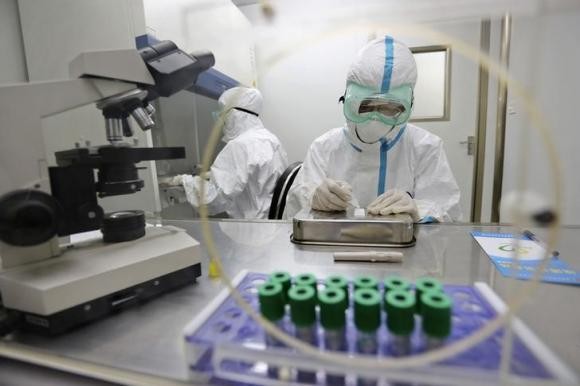Researchers will be testing two sets of antiviral drugs for Ebola in the worst-hit countries in West Africa in December in the hopes of finally concluding the epidemic by February 2015.
Ebola experts from the humanitarian medical team Doctors Without Borders said Wednesday that clinical tests on the Ebola drugs will begin in December at treatment centers in Guinea as deaths from the virus have already reached more than 5,000.
Latest statistics from the World Health Organization revealed nearly 15,000 confirmed and suspected cases of Ebola in Guinea, Liberia and Sierra Leone as well as other countries including Spain and the United States.
The antivirals that are scheduled for testing are Chimerix Incorporated's brincidofovir, an experimental drug created to fight other viruses, and favipiravir, a Japan-approved influenza treatment developed in the Toyama Chemical unit of the Fujifilm Holdings Corporation.
The drugs will be tested separately at treatment centers in West Africa where patients who survived two weeks of treatment will be reported.
Currently, regulators have not yet approved the use of both antivirals nor any other drug, as nothing has been proven to cure those sick with the Ebola virus.
"We need to keep in mind that there is no guarantee that these therapies will be the miracle cure. But we need to do all we can to try the products available today to increase the chances of finding an effective treatment against Ebola," Doctors Without Borders representative Annick Antierens said.
Before the clinical test, medical workers from the organization would explain to the Ebola patients to be subjected to the trials the possible risks for them.
Researchers, however, promised that the trials will be strictly guided by international ethical standards.
According to Oxford researcher Peter Horby, the trial would need up to 140 adult Ebola patients who would receive several doses of brincidofovir during the course of two weeks.
Should 80 percent of the test patients survive after two weeks, the test result would be considered "good evidence the drug is effective."
Meanwhile, a group from the French National Institute of Health and Medical Research (INSERM) will lead the trial for Fujifilm's favipiravir in Guéckédou, Guinea.
According to reports, the antiviral has been tested to have helped mice avoid being infected with Ebola and was already given to some infected humans in Europe.






















